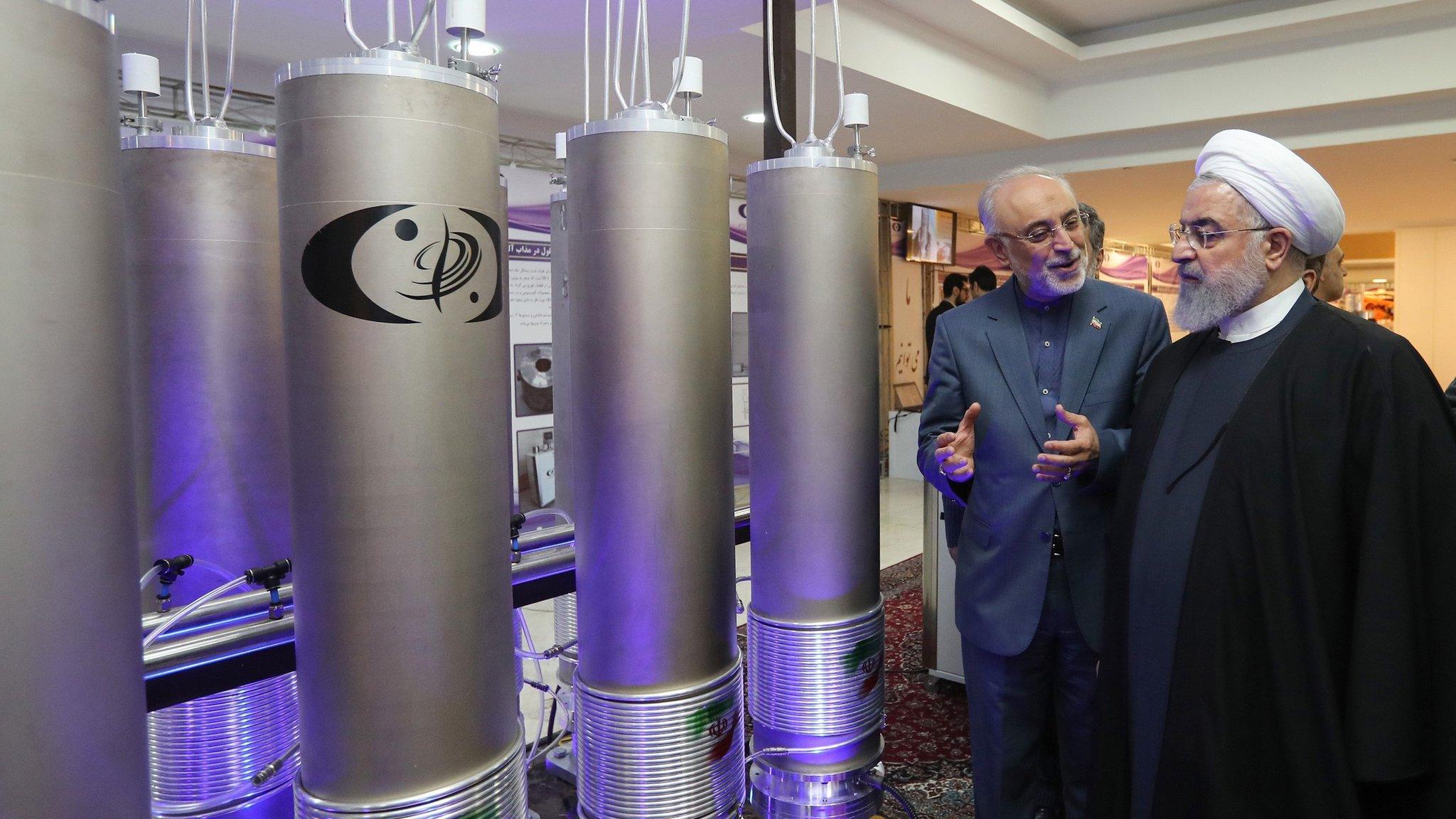Inside Iran: What Iranians think of stand-off with US
- Published
Inside Iran: Iranians on Trump and the nuclear deal
As tensions rise between Iran, the US and its allies, the BBC has been given rare access to Iran.
Iranians remain furious that US President Donald Trump pulled out of the nuclear deal last year and has imposed crushing sanctions on the country.
BBC correspondent Martin Patience, along with cameraman Nik Millard and producer Cara Swift, have been in Tehran and the holy city of Qom, talking to Iranians about the escalating crisis.
While in country, recording access was controlled - as with all foreign media the team was accompanied by a government representative at all times.
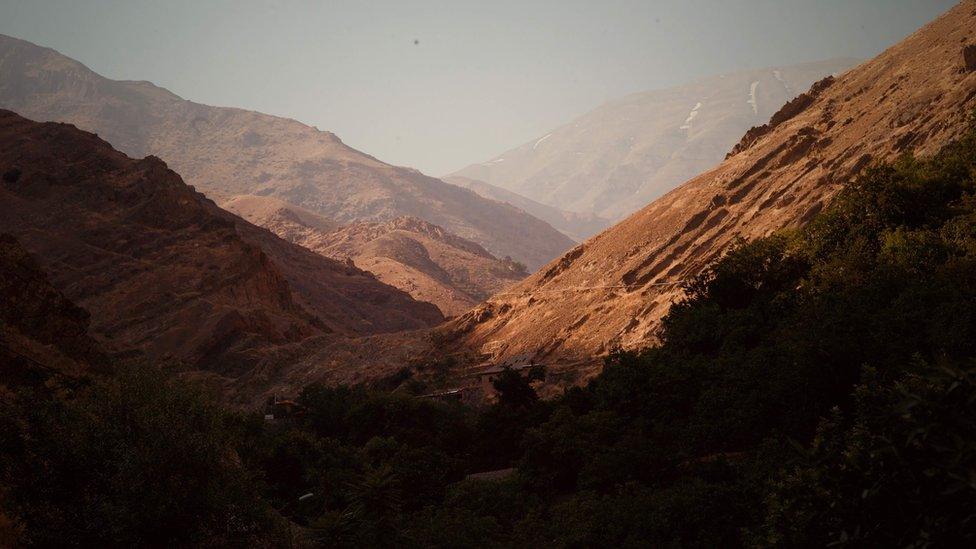
The hills provide respite from the heat and the pollution that choke Tehran
Even in the sweltering summer months, you can still see snow on the towering peaks of the Alborz mountains that form the stunning backdrop to the Iranian capital.
Tehran's wealthiest suburbs cling to the slopes, which provide respite from the heat and the pollution that choke this city of almost nine million people.
At the weekends, many Iranians - young and old - take to the trails with their rucksacks and hiking sticks to leave the city behind them. But even up in the clean mountain air there is no escape from the US sanctions.
"Who's not suffering?" asks one man rhetorically. As if to make the point, he shows me his climbing clip, hanging from his belt. It now cost four times what it did a year ago.
Donald Trump reimposed sanctions on Iran last year after he unilaterally pulled out of a 2015 nuclear deal between Iran and six world powers.
The US president said the previous deal was too generous to Iran and gave the country a free hand to develop ballistic missiles and meddle in the Middle East.
Mr Trump wants to use "maximum pressure" to force Iran back to the negotiating table. Many fear it could lead to conflict.
Iran is furious. It feels betrayed by the US and abandoned by European countries that still support the deal - the UK, France and Germany.
America's decision has strengthened the hardliners here who say that Washington should never have been trusted in the first place. That mistrust of the US (and the UK) runs deep in Iran, after both countries orchestrated a coup that ousted Iran's democratically elected prime minister in 1953.
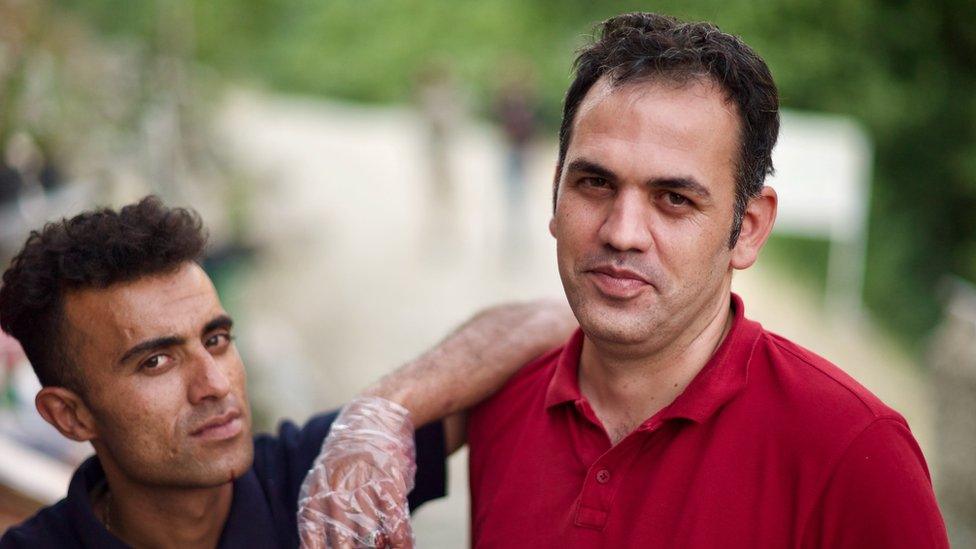
Hadi (right) says the US sanctions have united Iranian liberals and conservatives
"We Iranians have a very long history, and we're always standing up against difficulties," says Hadi, who runs one of the small cafes that offer refreshments to passing hikers.
His cafe is half-built, there is a tarpaulin for a roof, but he invites me inside for tea and fruits - cherries, apricots and watermelon.
Hadi says that the Americans thought the sanctions would lead to rioting and the Iranian government would have no choice but to compromise.
But he says the sanctions have done the exact opposite uniting both liberals and conservatives across the country.
"We have national unity here, and the more difficult the situation the more united the people become."
Away from the mountains and down below in the hazy fog of Tehran's sprawling southern suburbs is where sanctions are being felt hardest.
It is a maze of narrow alleyways and homes piled on top of each other. This is where Iran's working classes live.
They were already on the margins before sanctions but the past year has tipped many of them over the edge.
Food prices have more than doubled and because the economy is slumping many are struggling to find work and make ends meet.
"I'm not sure what Donald Trump gains by hurting us," said Zohreh Farzaneh, a mother-of-three who folds clothes for living. She makes about $2 (£1.60) a day.
She says the sanctions have plunged her family into poverty and that she can no longer afford meat for family or an inhaler for her asthma.
She's sending her 11-year-old son to a charity so that he can get at least one decent meal a day. The humiliation that she feels at having to ask for help pains her.
"We thank god that we have a piece of bread and cheese to eat," she told me. "At least we have peace in Iran - there's no war."
Every Iranian I spoke to on this 10-day trip believed it was unlikely there would be a war with the United States, despite tensions escalating after the US blamed Iran for attacks on oil tankers in the Gulf of Oman and Iran shot down of a US surveillance drone over the Strait of Hormuz.
Iran's former Deputy Foreign Minister Hossein Sheikholislam said that was because it war was in neither country's interest.
"There is not going to be a war. Of course, it's possible somebody will make a mistake. But we do not want a war.
"And I believe that Mr Trump understands a war is not in his favour because a war against us means dead American soldiers - and he is not ready to make a funeral in Washington DC," Mr Sheikholislam said.
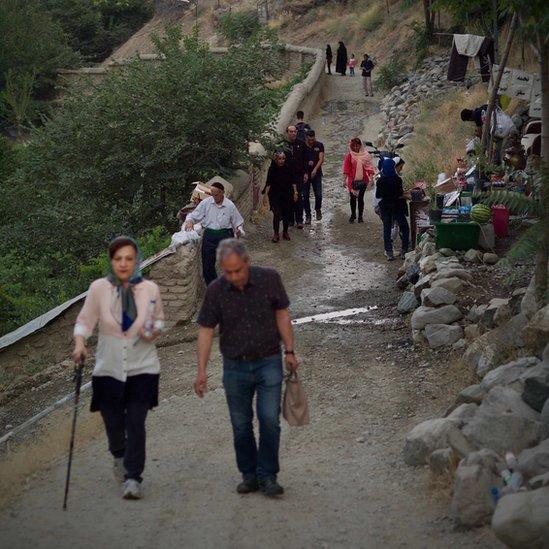
Hiking is a popular pastime for many Iranians
Back on the mountain, I keep pushing higher up the trail, passing a stream gushing with crystal clear water.
I met a young woman, Nasim, who was hiking with a group of friends.
I asked her what she thought of President Trump. She laughed. She raised her hands, palms turned upwards, gesturing that she didn't know what to say.
But then what she said surprised me.
"Maybe it would even be better for us if a war happens," she said.
I asked: Why would someone want war?
"It might actually lead to a change in our ruling system. It might lead to a better situation. But if it's going to lead to a civil war then no, it's not going to be good at all," she replied.
In 2009, people like Nasim, took to the streets in protest after the disputed re-election of then President Mahmoud Ahmadinejad.
It was dubbed the "Green Revolution", after the colour used by one of the defeated opposition presidential candidates, Mir Hossein Mousavi, who has been held under house arrest since then.
The authorities cracked down hard on the mass protests and insist there is no powerful opposition movement in Iran.
But this is a country of many political opinions.
You have the hardline religious conservatives, as well as liberals - and probably a majority of Iranians who just want to keep their heads down. It's these divisions that President Trump believes he can exploit.
Make no mistake, it's the hardliners who run this country.
But when Iran is confronted by America, most Iranians, conservative or liberal, will put their country first.
- Published14 July 2019
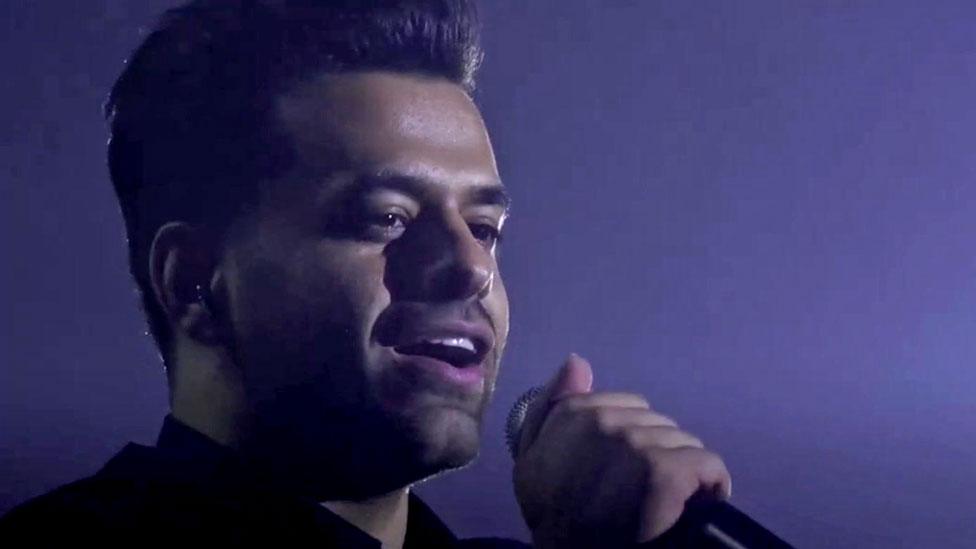
- Published23 November 2018
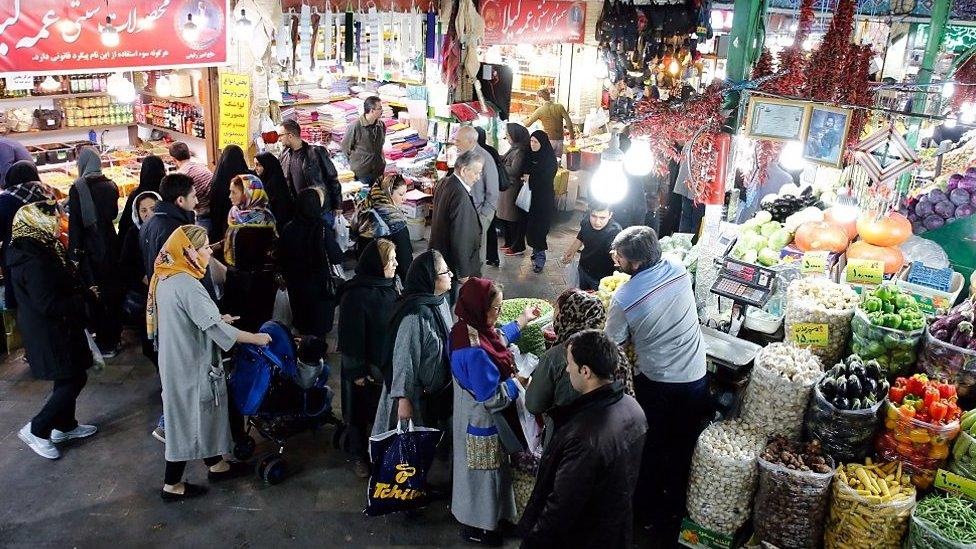
- Published30 April 2021
